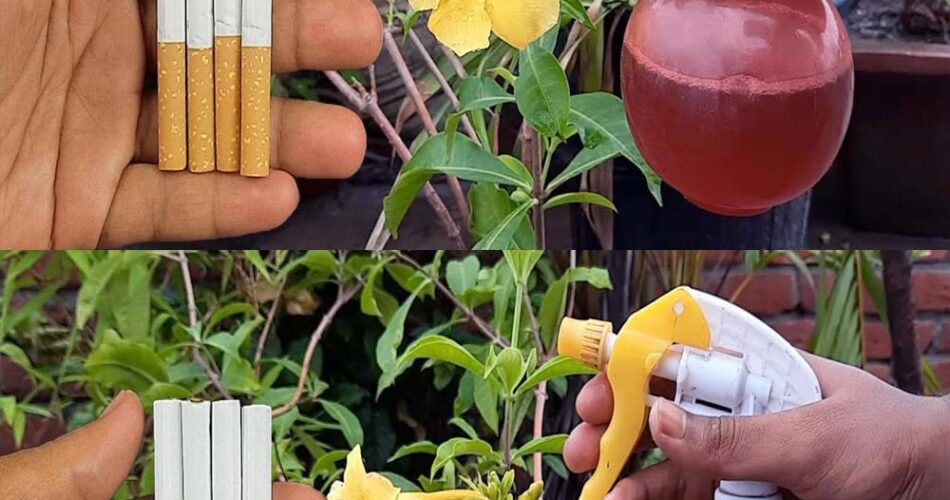How to make cheap and effective pesticides from cigarettes
Pesticides are often used to protect crops from pests and diseases, but the chemicals they contain can be harmful to the environment and human health. However, it is possible to make cheap and effective pesticides from cigarettes, using natural and easily accessible ingredients. In this article, we will explain how to proceed step by step.
Necessary ingredients:
- Used cigarettes
- Water
- Laurel leaf
- Liquid soap
Steps to follow:
1. Start by collecting used cigarettes. You will need about 10 to 15 cigarettes to prepare enough pesticides.
2. Remove tobacco from cigarettes by decortifying them. You can dispose of or store the tobacco for later use.
3. Place the cigarette filters in a container with water and soak them for a few hours. This will remove toxic substances from the filters.
4. Filter water to remove filter residues. This will give you a dark liquid that will serve as the basis for your pesticide.
5. Add a crushed bay leaf to filtered water. Laurel is a natural repellent for many insects and will help increase the effectiveness of your pesticide.
6. Add a few drops of liquid soap to the preparation. Soap will act as a wetting agent to allow the pesticide to better adhere to plants.
7. Shake the mixture well so that all ingredients are homogeneous. Your natural pesticide is now ready for use!
Use of the pesticide:
1. Pour the pesticide into a spray and spray it on plants infested with pests. Make sure to cover the leaves and stems evenly.
2. Repeat the application of the pesticide every 7-10 days, depending on the severity of the infestation. You should start seeing a decrease in pest populations after a few applications.
3. Avoid using the pesticide in windy weather to avoid product dispersion. It is best to apply early morning or late day for better efficiency.
By following these simple steps, you can make your own inexpensive and effective pesticide from cigarettes. This natural pesticide will allow you to protect your crops while preserving the environment and your health. Try this alternative and ecological method to fight pests in your garden or on your indoor plants!
